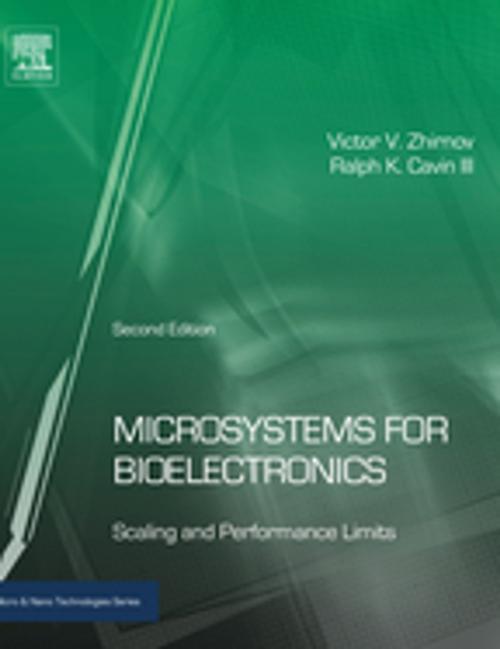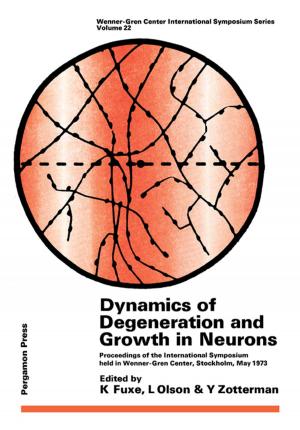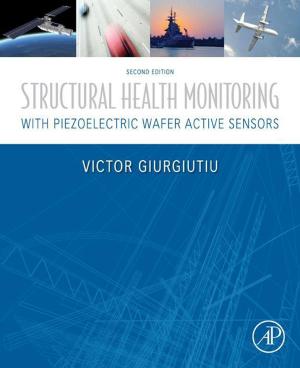Microsystems for Bioelectronics
Scaling and Performance Limits
Nonfiction, Science & Nature, Technology, Material Science, Science, Biological Sciences, Biotechnology| Author: | Victor V. Zhirnov, Ralph K. Cavin III | ISBN: | 9780323312691 |
| Publisher: | Elsevier Science | Publication: | February 27, 2015 |
| Imprint: | William Andrew | Language: | English |
| Author: | Victor V. Zhirnov, Ralph K. Cavin III |
| ISBN: | 9780323312691 |
| Publisher: | Elsevier Science |
| Publication: | February 27, 2015 |
| Imprint: | William Andrew |
| Language: | English |
The advances in microsystems offer new opportunities and capabilities to develop systems for biomedical applications, such as diagnostics and therapy. There is a need for a comprehensive treatment of microsystems and in particular for an understanding of performance limits associated with the shrinking scale of microsystems. The new edition of Microsystems for Bioelectronics addresses those needs and represents a major revision, expansion and advancement of the previous edition.
This book considers physical principles and trends in extremely scaled autonomous microsystems such as integrated intelligent sensor systems, with a focus on energy minimization. It explores the implications of energy minimization on device and system architecture. It further details behavior of electronic components and its implications on system-level scaling and performance limits. In particular, fundamental scaling limits for energy sourcing, sensing, memory, computation and communication subsystems are developed and new applications such as optical, magnetic and mechanical sensors are presented.
The new edition of this well-proven book with its unique focus and interdisciplinary approach shows the complexities of the next generation of nanoelectronic microsystems in a simple and illuminating view, and is aimed for a broad audience within the engineering and biomedical community.
The advances in microsystems offer new opportunities and capabilities to develop systems for biomedical applications, such as diagnostics and therapy. There is a need for a comprehensive treatment of microsystems and in particular for an understanding of performance limits associated with the shrinking scale of microsystems. The new edition of Microsystems for Bioelectronics addresses those needs and represents a major revision, expansion and advancement of the previous edition.
This book considers physical principles and trends in extremely scaled autonomous microsystems such as integrated intelligent sensor systems, with a focus on energy minimization. It explores the implications of energy minimization on device and system architecture. It further details behavior of electronic components and its implications on system-level scaling and performance limits. In particular, fundamental scaling limits for energy sourcing, sensing, memory, computation and communication subsystems are developed and new applications such as optical, magnetic and mechanical sensors are presented.
The new edition of this well-proven book with its unique focus and interdisciplinary approach shows the complexities of the next generation of nanoelectronic microsystems in a simple and illuminating view, and is aimed for a broad audience within the engineering and biomedical community.















